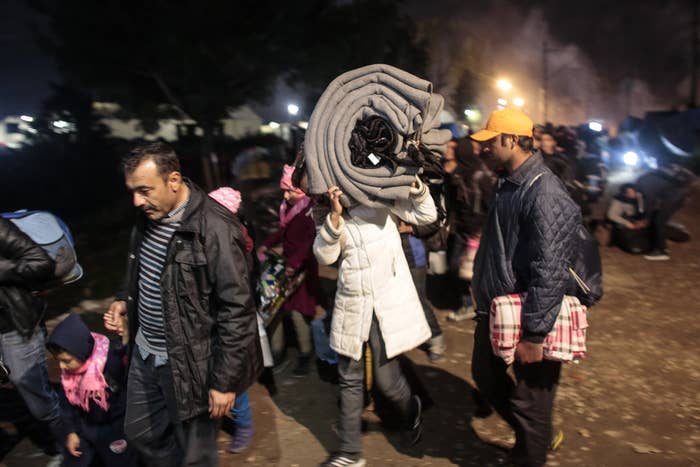
WASHINGTON — At a conference on international migration held on Friday, a senior State Department official said that the Department of Homeland Security is ramping up its overseas presence to reduce the wait time for refugees traveling to the United States.
According to the State Department, it currently takes 18 to 24 months to process refugees from Syria. That process includes several layers of security screening and an in-person interview with a representative from the Department of Homeland Security.
Simon Henshaw, the principal assistant secretary of state for the Bureau of Population, Refugees, and Migration, told conference goers that the State Department was looking to shorten the time it takes for the U.S. to begin processing refugees after they have been referred by the United Nations, and added that the Department of Homeland Security was working on an "almost continuous" presence in areas with large refugee populations.
“Where we expect to have a large refugee population, we are working to having an almost continuous DHS presence which would speed up the process by several months” Henshaw said. The DHS presence would reduce the time it takes for Syrian refugees to undergo their in-person interview.
This past summer, refugee resettlement advocates applied pressure on the Obama administration to find ways to reduce the time it takes to process refugees. Since the attacks in Paris, that discussion has been turned on its head, with state governors, presidential candidates, and lawmakers, all mostly Republican, zeroing in on the potential threat from ISIS seeking to exploit the refugee process to attack the United States.
In November, the House passed a bill with bipartisan support that would pause U.S. efforts to resettle refugees until security assurances were made. The Obama administration has maintained throughout the debate that the security process is sound.
